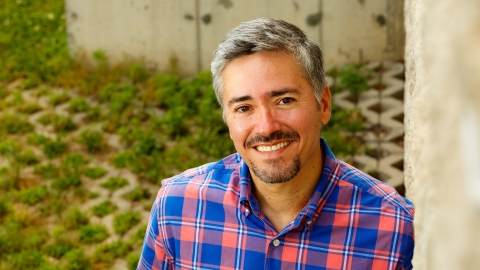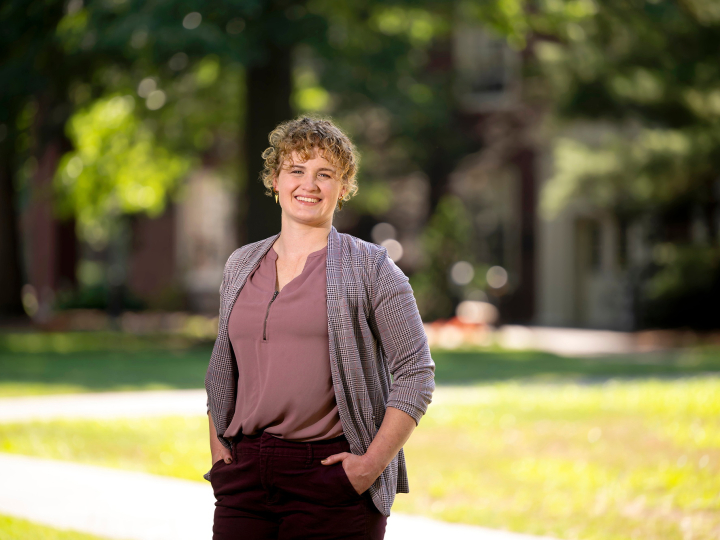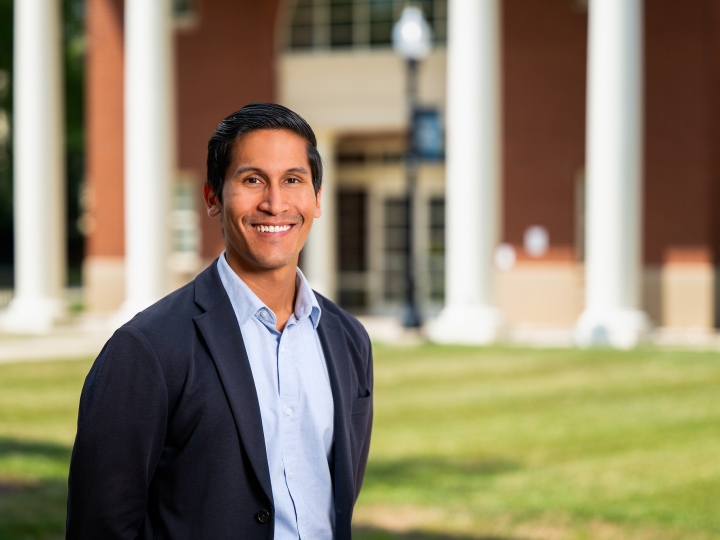
Felipe Perrone, Computer Science
September 23, 2016
We study how computing drives the evolution of society, how it changes the human being.
As we permit computers ever-greater access into and control over our lives — from our bank accounts to our cars to the climate of our homes — it's more important than ever for the programmers and computer scientists behind that technology to have a conscience, says Professor Felipe Perrone, computer science.
"It’s important for students to develop a moral framework for thinking through what they’re being asked to do," Perrone says. "There are many technologies that get developed because we can, without paying attention to whether we should be developing them. I want my students to have thought through the consequences of what they’re creating."
As the Robert L. Rooke Chair in the Historical & Societal Context of Engineering, Perrone explores the interface between engineering, technology and society. In classes like Life, Computers and Everything, an interdisciplinary course open to all juniors and seniors, his students apply ethics to questions shaped by advances in computing, teasing out rational justifications for why they think particular uses of technology are morally right or wrong.
"We study how computing drives the evolution of society, how it changes the human being," Perrone says. "That means we look at how it improves productivity — how it makes the business world a well-functioning body — but we also look at certain negative consequences of the use of computing. To cite a few: the pros and cons of a surveillance society, gender and race issues in technology and computing, and the intersection of computers and government."
In his technical classes, Perrone's students have opportunities not only to explore the implications of advancing technology, but also to create that technology themselves — engaging not just in "academic musings," he says, but in projects that have tangible impact as well.
Perrone's research concerns computer-network simulation and tools that make simulations more accurate and credible to the scientific community. More than 25 students have collaborated in his research projects over the years. A five-year project funded by the National Science Foundation that he recently concluded resulted in four conference papers and three posters co-authored by undergraduate students, as well as additional opportunities for students to present their work at international conferences.
"As their mentor, I had the scope of the problem and design options for solutions that I thought would be appropriate for solving it, but they were the ones who implemented those solutions," Perrone says.
In the future, Perrone is looking to to broaden the scope of his research by collaborating with faculty and students in computer science and other academic disciplines. He's hoping to explore intersections of computing with subjects as diverse as philosophy (to examine implications of artificial intelligence), social sciences and journalism (to study how data visualization can support a narrative).
"One of the biggest changes in computer science education in the last 10 years has been the broadened awareness that computing itself doesn't change the world — it's computing coupled with something else that's the lever that can move mountains," Perrone says.

